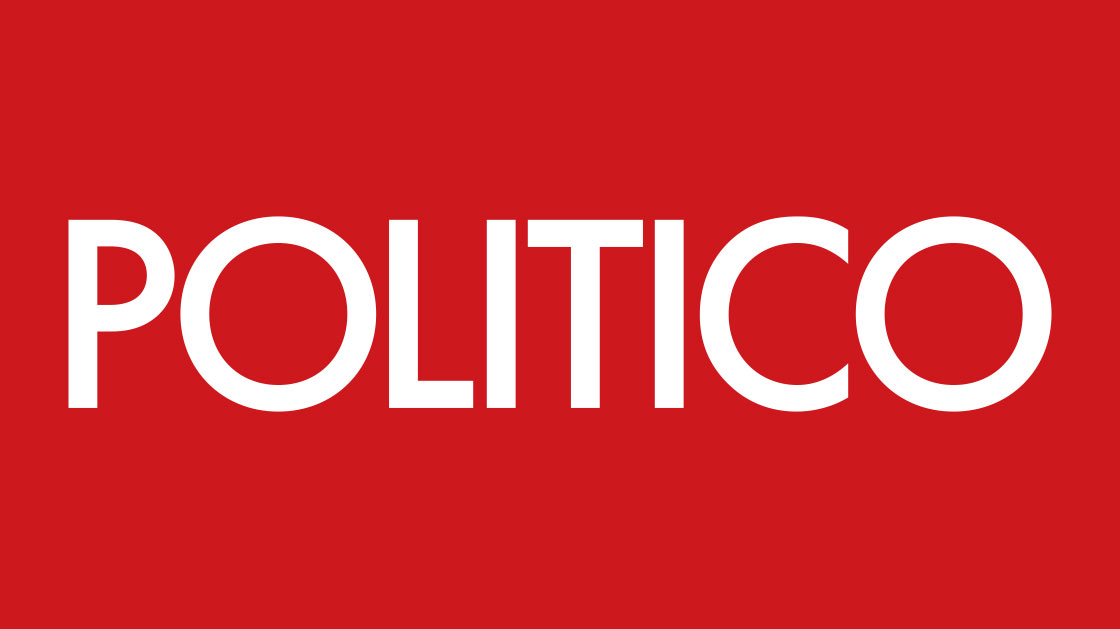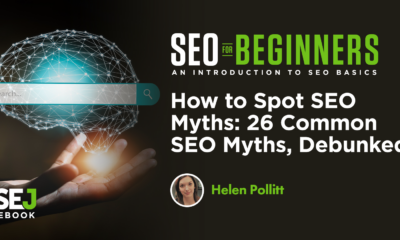FTC sets its sights on the health data market

With Carmen Paun
AN FTC FIRST — The Federal Trade Commission is cracking down on companies sharing health data in new ways that could have implications for online business models, POLITICO’s Ruth Reader reports.
The FTC said Wednesday it had reached an agreement with GoodRx on a fine and remedies after the prescription discount site and telehealth provider shared customers’ health data with Google, Facebook and other third parties.
It’s the commission’s first enforcement of its 2009 Health Breach Notification Rule. Pending a court’s agreement, the decision could upend business models that rely on selling or using the data.
In the agreement with GoodRx, the agency filed a proposed order to levy a $1.5 million fine and enforce the remedies with the federal court in the northern district of California, which still must approve the agreement.
The FTC said GoodRx was unfair in its handling of customer data — alleging the company falsely claimed it complied with HIPAA and also shared information when it pledged not to. The company also had no internal processes to protect, or limit third-party access to, consumer health data, the commission said.
Though GoodRx has agreed to settle, it didn’t admit wrongdoing. The company also said it didn’t believe the FTC action would materially impact the business.
“We believe this is a novel application of the Health Breath Notification Rule by the FTC. We used Facebook tracking pixels to advertise in a way that we feel was compliant with regulations and that remains common practice for many websites,” the company said in a statement.
Still, the FTC is signaling heightened interest in the issue, data privacy experts say.
“What they’re doing is sending a warning shot across the digital bow of the online advertising industry saying, ‘Hey, these things are unfair, we’re watching, and you should not be using this health information in the way it’s being used,’” said Jeff Chester, executive director of the Center for Digital Democracy, a Washington, D.C.-based nonprofit that advocates for digital privacy and consumer protections online.
WELCOME TO THURSDAY PULSE. One bill to keep an eye on: a proposition to make roasted chile New Mexico’s official state aroma. What should your state’s official aroma be? Send ideas — and health news — to [email protected] and [email protected].
TODAY ON OUR PULSE CHECK PODCAST, Erin Schumaker talks with Megan Messerly about the millions of Americans who were allowed to remain covered by Medicaid during the pandemic and what could happen now that Congress has given states the go-ahead to reevaluate who’s still eligible for those health insurance benefits.
AMERICA DOESN’T HAVE THE CAPACITY TO IDENTIFY PANDEMIC ORIGINS, EXPERTS TELL CONGRESS — The United States doesn’t have the combination of scientific research, access to samples databases, domestic operational plans and international partnerships that can reliably identify the source of disease outbreaks such as the coronavirus pandemic, five experts told a House Energy and Commerce subcommittee hearing Wednesday, Carmen reports.
Using genetic sequencing and analyzing blood samples stored in databases are technologies that have proven useful in detecting the origin of other diseases in the past, but a lack of access to such databases hinders origin investigation, Karen Howard, the acting chief scientist at the Government Accountability Office told the subcommittee on oversight and investigations.
International agreements should be developed to standardize sample databases that could help in researching a virus’ origin, she said, adding that the U.S. should also develop a detailed national strategy for investigating a pandemic’s beginning, she said.
One single office in the U.S. government should coordinate the work of several agencies in identifying where an outbreak started, added Tom Inglesby, the director of the Center for Health Security at the Johns Hopkins Bloomberg School of Public Health and a former adviser on the White House Covid-19 Response Team.
Why it matters: Inglesby said the ability to investigate a viral outbreak could be a form of deterrence against enemies who would want to use biological weapons against the U.S.
The hearing was the first for this Congress that focused on Covid’s origins, an issue that the Republican House majority has made a priority. Most questions from the Republican subcommittee members focused on whether it could be demonstrated that the coronavirus originated at the Wuhan virology lab.
The health experts testifying said the current data doesn’t clearly trace the virus to the Wuhan lab, but several studies link it to a live animal market in that Chinese city.
Michael Imperiale, a professor of microbiology and immunology at the University of Michigan, warned against politicizing the debate and discouraged scientists from getting involved in such research. Some of his colleagues studying viruses with pandemic potential, he said, have received death threats from people who mistrust the researcher’s work, suspecting them of deliberately engineering viruses to become more transmissible or dangerous.
“We must be careful not to throw sand in the gear that slows our progress, dissuades our scientists or discourages our young people from being a part of our scientific system,” he told lawmakers.
WYDEN WANTS INFO ON IRA REBATES — Sen. Ron Wyden (D-Ore.) sent a letter Wednesday to CMS Administrator Chiquita Brooks-LaSure asking for details about the Medicare Part D and Part B inflation rebate provisions included in the Inflation Reduction Act.
The information requested includes a timeline for implementing rebates, an explanation of how those rebates will be calculated and a plan to promptly penalize companies that increase prices faster than the inflation rate.
ONCDP TO THE CABINET? A bipartisan group of 55 lawmakers asked President Joe Biden in a letter Wednesday to add the director of the Office of National Drug Control Policy to a Cabinet-level position.
The lawmakers wrote that, amid the opioid epidemic, the president should announce the change at next week’s State of the Union address and push ending the crisis as a top priority.
IN CASE OF DEFAULT — The largest House Republican caucus worked on a list of ideas for fiscal reform, including an item on Medicare, POLITICO’s Caitlin Emma and Olivia Beavers report.
Though Speaker Kevin McCarthy said earlier this week that Medicare and Social Security were off the table for cuts, the group is considering a way to continue payments to beneficiaries should the U.S. default on its debt.
FDA EMPLOYEES WON’T BE FIRED OVER FORMULA CRISIS — As the FDA looks to major reforms in the wake of the infant formula crisis, the agency’s commissioner said employees won’t be fired or reassigned in the changes, POLITICO’s Meredith Lee Hill reports.
The announcement came as Commissioner Robert Califf rolled out his “new, transformative vision” of the main agency tasked with overseeing food safety in the U.S., though he didn’t include specific plans to address breakdowns around infant formula.
Still, Califf pointed to some past “leadership changes.” His remarks come just days after senior FDA foods official Frank Yiannas’ resignation last week. In his resignation letter, Yiannas called for structural reforms in the troubled division.
“But the short answer is no one’s going to be reassigned or fired because of the infant formula situation,” Califf told reporters.
PANDEMIC PREP DEAL DETAILS — The World Health Organization shared plans for an international agreement aimed at improving pandemic preparations, Carmen reports.
The plan lays out ideas to avoid the failures from the Covid-19 pandemic, such as inequitable vaccine distribution.
The proposal would require countries to allow WHO rapid-response teams access to their territories to assess and support efforts to combat emerging outbreaks — after China didn’t grant fast access to international experts to the Wuhan virology lab at the pandemic’s outset.
The draft also demands that countries support temporary waivers of intellectual property rights on those products and requires manufacturers that received public funding for their development to waive their rights. That sort of provision, hotly contested through the Covid era, will likely be fought by pharmaceutical companies.
Governments will start negotiations on the agreement at a meeting later this month, with discussions continuing for the next year.
FIRST IN PULSE: Andrea Harris, previously chief of staff to Rep. Lauren Underwood (D-Ill.) and two HHS assistant secretaries, will join Protect Our Care as director of policy programs.
Jean Accius is now president and CEO of Creating Healthier Communities. He previously was SVP of global thought leadership for AARP.
The New York Times reports that vaccine makers kept well over $1 billion in prepayments for Covid shots for developing countries.
Kaiser Health News writes about nursing home owners funneling cash out of facilities during the pandemic.
The Washington Post reports on research about the cancer risk associated with ultra-processed food.
Facebook Faces Yet Another Outage: Platform Encounters Technical Issues Again

Uppdated: It seems that today’s issues with Facebook haven’t affected as many users as the last time. A smaller group of people appears to be impacted this time around, which is a relief compared to the larger incident before. Nevertheless, it’s still frustrating for those affected, and hopefully, the issues will be resolved soon by the Facebook team.
Facebook had another problem today (March 20, 2024). According to Downdetector, a website that shows when other websites are not working, many people had trouble using Facebook.
This isn’t the first time Facebook has had issues. Just a little while ago, there was another problem that stopped people from using the site. Today, when people tried to use Facebook, it didn’t work like it should. People couldn’t see their friends’ posts, and sometimes the website wouldn’t even load.
Downdetector, which watches out for problems on websites, showed that lots of people were having trouble with Facebook. People from all over the world said they couldn’t use the site, and they were not happy about it.
When websites like Facebook have problems, it affects a lot of people. It’s not just about not being able to see posts or chat with friends. It can also impact businesses that use Facebook to reach customers.
Since Facebook owns Messenger and Instagram, the problems with Facebook also meant that people had trouble using these apps. It made the situation even more frustrating for many users, who rely on these apps to stay connected with others.
During this recent problem, one thing is obvious: the internet is always changing, and even big websites like Facebook can have problems. While people wait for Facebook to fix the issue, it shows us how easily things online can go wrong. It’s a good reminder that we should have backup plans for staying connected online, just in case something like this happens again.
Christian family goes in hiding after being cleared of blasphemy

LAHORE, Pakistan — A court in Pakistan granted bail to a Christian falsely charged with blasphemy, but he and his family have separated and gone into hiding amid threats to their lives, sources said.
Haroon Shahzad, 45, was released from Sargodha District Jail on Nov. 15, said his attorney, Aneeqa Maria. Shahzad was charged with blasphemy on June 30 after posting Bible verses on Facebook that infuriated Muslims, causing dozens of Christian families in Chak 49 Shumaali, near Sargodha in Punjab Province, to flee their homes.
Lahore High Court Judge Ali Baqir Najfi granted bail on Nov. 6, but the decision and his release on Nov. 15 were not made public until now due to security fears for his life, Maria said.
Shahzad told Morning Star News by telephone from an undisclosed location that the false accusation has changed his family’s lives forever.
“My family has been on the run from the time I was implicated in this false charge and arrested by the police under mob pressure,” Shahzad told Morning Star News. “My eldest daughter had just started her second year in college, but it’s been more than four months now that she hasn’t been able to return to her institution. My other children are also unable to resume their education as my family is compelled to change their location after 15-20 days as a security precaution.”
Though he was not tortured during incarceration, he said, the pain of being away from his family and thinking about their well-being and safety gave him countless sleepless nights.
“All of this is due to the fact that the complainant, Imran Ladhar, has widely shared my photo on social media and declared me liable for death for alleged blasphemy,” he said in a choked voice. “As soon as Ladhar heard about my bail, he and his accomplices started gathering people in the village and incited them against me and my family. He’s trying his best to ensure that we are never able to go back to the village.”
Shahzad has met with his family only once since his release on bail, and they are unable to return to their village in the foreseeable future, he said.
“We are not together,” he told Morning Star News. “They are living at a relative’s house while I’m taking refuge elsewhere. I don’t know when this agonizing situation will come to an end.”
The Christian said the complainant, said to be a member of Islamist extremist party Tehreek-e-Labbaik Pakistan and also allegedly connected with banned terrorist group Lashkar-e-Jhangvi, filed the charge because of a grudge. Shahzad said he and his family had obtained valuable government land and allotted it for construction of a church building, and Ladhar and others had filed multiple cases against the allotment and lost all of them after a four-year legal battle.
“Another probable reason for Ladhar’s jealousy could be that we were financially better off than most Christian families of the village,” he said. “I was running a successful paint business in Sargodha city, but that too has shut down due to this case.”
Regarding the social media post, Shahzad said he had no intention of hurting Muslim sentiments by sharing the biblical verse on his Facebook page.
“I posted the verse a week before Eid Al Adha [Feast of the Sacrifice] but I had no idea that it would be used to target me and my family,” he said. “In fact, when I came to know that Ladhar was provoking the villagers against me, I deleted the post and decided to meet the village elders to explain my position.”
The village elders were already influenced by Ladhar and refused to listen to him, Shahzad said.
“I was left with no option but to flee the village when I heard that Ladhar was amassing a mob to attack me,” he said.
Shahzad pleaded with government authorities for justice, saying he should not be punished for sharing a verse from the Bible that in no way constituted blasphemy.
Similar to other cases
Shahzad’s attorney, Maria, told Morning Star News that events in Shahzad’s case were similar to other blasphemy cases filed against Christians.
“Defective investigation, mala fide on the part of the police and complainant, violent protests against the accused persons and threats to them and their families, forcing their displacement from their ancestral areas, have become hallmarks of all blasphemy allegations in Pakistan,” said Maria, head of The Voice Society, a Christian paralegal organization.
She said that the case filed against Shahzad was gross violation of Section 196 of the Criminal Procedure Code (CrPC), which states that police cannot register a case under the Section 295-A blasphemy statute against a private citizen without the approval of the provincial government or federal agencies.
Maria added that Shahzad and his family have continued to suffer even though there was no evidence of blasphemy.
“The social stigma attached with a blasphemy accusation will likely have a long-lasting impact on their lives, whereas his accuser, Imran Ladhar, would not have to face any consequence of his false accusation,” she said.
The judge who granted bail noted that Shahzad was charged with blasphemy under Section 295-A, which is a non-cognizable offense, and Section 298, which is bailable. The judge also noted that police had not submitted the forensic report of Shahzad’s cell phone and said evidence was required to prove that the social media was blasphemous, according to Maria.
Bail was set at 100,000 Pakistani rupees (US $350) and two personal sureties, and the judge ordered police to further investigate, she said.
Shahzad, a paint contractor, on June 29 posted on his Facebook page 1 Cor. 10:18-21 regarding food sacrificed to idols, as Muslims were beginning the four-day festival of Eid al-Adha, which involves slaughtering an animal and sharing the meat.
A Muslim villager took a screenshot of the post, sent it to local social media groups and accused Shahzad of likening Muslims to pagans and disrespecting the Abrahamic tradition of animal sacrifice.
Though Shahzad made no comment in the post, inflammatory or otherwise, the situation became tense after Friday prayers when announcements were made from mosque loudspeakers telling people to gather for a protest, family sources previously told Morning Star News.
Fearing violence as mobs grew in the village, most Christian families fled their homes, leaving everything behind.
In a bid to restore order, the police registered a case against Shahzad under Sections 295-A and 298. Section 295-A relates to “deliberate and malicious acts intended to outrage religious feelings of any class by insulting its religion or religious beliefs” and is punishable with imprisonment of up to 10 years and fine, or both. Section 298 prescribes up to one year in prison and a fine, or both, for hurting religious sentiments.
Pakistan ranked seventh on Open Doors’ 2023 World Watch List of the most difficult places to be a Christian, up from eighth the previous year.
Morning Star News is the only independent news service focusing exclusively on the persecution of Christians. The nonprofit’s mission is to provide complete, reliable, even-handed news in order to empower those in the free world to help persecuted Christians, and to encourage persecuted Christians by informing them that they are not alone in their suffering.
Free Religious Freedom Updates
Join thousands of others to get the FREEDOM POST newsletter for free, sent twice a week from The Christian Post.
Individual + Team Stats: Hornets vs. Timberwolves
CHARLOTTE HORNETS MINNESOTA TIMBERWOLVES You can follow us for future coverage by liking us on Facebook & following us on X: Facebook – All Hornets X – …
Source link
-

 SEARCHENGINES5 days ago
SEARCHENGINES5 days agoBillions Of Google goo.gl URLs To 404 In The Future
-

 SEO7 days ago
SEO7 days ago26 Common SEO Myths, Debunked
-
SEARCHENGINES4 days ago
Daily Search Forum Recap: July 22, 2024
-

 SEARCHENGINES6 days ago
SEARCHENGINES6 days agoGoogle Core Update Coming, Ranking Volatility, Bye Search Notes, AI Overviews, Ads & More
-

 SEO5 days ago
SEO5 days ago11 Copyscape Alternatives To Check Plagiarism
-

 SEO6 days ago
SEO6 days agoGoogle Warns Of Last Chance To Export Notes Search Data
-
SEARCHENGINES3 days ago
Daily Search Forum Recap: July 23, 2024
-

 AFFILIATE MARKETING6 days ago
AFFILIATE MARKETING6 days agoThe Top 5 AI Tools That Can Revolutionize Your Workflow and Boost Productivity















You must be logged in to post a comment Login